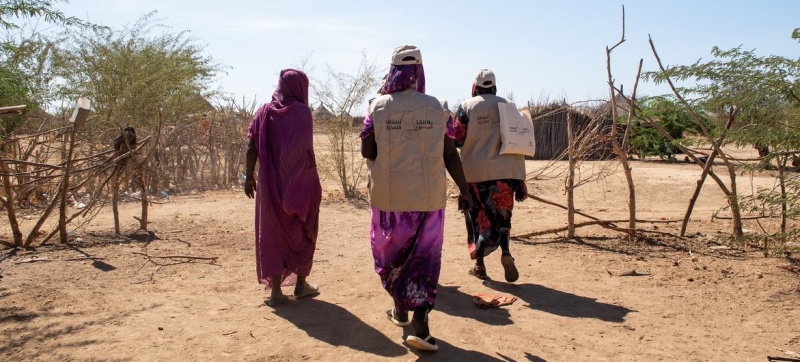
The World Food Programme (WFP) and UNICEF warn of the possibility of a full-scale famine in Sudan. Top stories of the day | Tuesday: Sudan, Syria, Haiti, the Pelico case UN
Top stories of the day in the UN and around the world: famine in Sudan, mass executions in Haiti, return of refugees to Syria, multiple rape trial in France.
Famine in Sudan
The food situation in Sudan is rapidly deteriorating, with millions of people facing food shortages and several regions of the country already experiencing famine. The World Food Programme (WFP) and UNICEF have warned of the possibility of full-scale famine. Four months ago, famine was first officially confirmed in Zamzam camp in North Darfur. It has since spread to new areas, including the Western Nuba Mountains and camps for internally displaced people. More than 24 million people in Sudan are suffering from acute food insecurity, according to new projections.
Violence in Haiti
At least 207 people were executed by the Wharf Jeremie gang following an outbreak of violence in the Cité Soleil community in the Haitian capital Port-au-Prince about two weeks ago, a new UN report says. The report by the UN Integrated Office in Haiti and the Office of the UN High Commissioner for Human Rights (OHCHR) covers the period from December 6 to 11. It says 134 men and 73 women were killed during that time. Most of the victims were elderly people who were accused of practicing voodoo and allegedly causing the illness of the gang leader’s child.
Syrian refugees
More Syrians have returned to the country in the past two weeks than in the whole of 2023, according to the UN Refugee Agency (UNHCR). Since December 8, about 51,000 people have crossed official border crossings from neighboring countries into Syria, of whom about 25,000 arrived from Turkey. According to UNHCR, many returnees find themselves amid destruction and without access to basic services and infrastructure. They are forced to look for shelter again. The security situation remains volatile, however, particularly in Idlib and Hama, where more than 400,000 people are displaced.
Gisèle Pélicot
A multiple rape trial in Mazan, France, has provided a stark reminder of the scale of sexual violence, said Reem Alsalem, UN Special Rapporteur on violence against women and girls. Dominique Pélicot was convicted on 19 December of brutal crimes involving drugging his ex-wife Gisèle Pélicot, raping her and orchestrating her rape by other men, and filming and distributing videos of the violence. Fifty other men have also been convicted. Reem Alsalem expressed support for Gisele Pelico, stressing that her actions were an example of courage and resilience.
